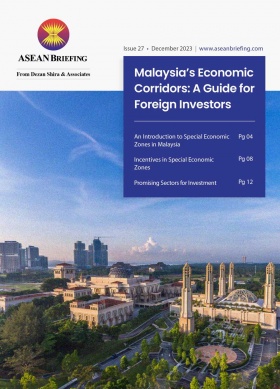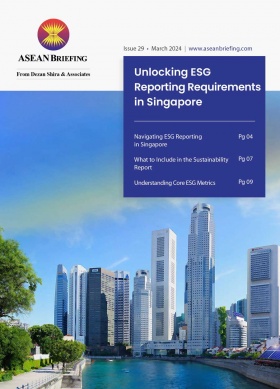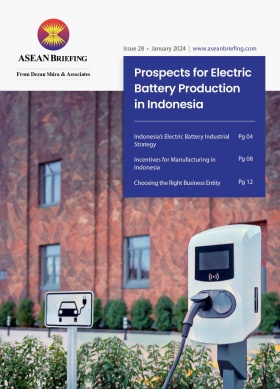Malaysia-Singapore Economic Relations: Trade and Investment Outlook
The economic partnership between Malaysia and Singapore has thrived through robust trade and strategic collaborations like the Johor Bahru-Singapore Rapid Transit System, and significant investments, positioning both as key players in ASEAN. Their cooperation spans diverse sectors, including electronics, renewable energy, and digital economy, enhancing regional connectivity and economic growth.
Malaysia and Singapore have a longstanding economic partnership, despite initially following different development paths after gaining independence. Singapore focused on export-driven growth and attracting foreign investment, while Malaysia pursued a strategy of substituting imports with locally produced goods. However, by the mid-1980s, both countries started aligning their economic policies, leading to increased trade. Over the past four decades, this trade has grown significantly, making each other their second-largest trading partner by the early 2000s.
Their economic cooperation remained strong even during the COVID-19 pandemic, with trade in goods remaining robust despite severe restrictions on cross-border movement. Both countries ensured the uninterrupted flow of essential goods early in the pandemic. The establishment of the Singapore-Malaysia Special Working Committee on COVID-19 in March 2020 further underscored their commitment to maintaining efficient trade and logistics.
This cooperation is supported by well-established and resilient logistics networks developed over years of investment. Both nations serve as regional distribution hubs for electronics, which are mostly exported to overseas markets.
In 2024, Malaysia and Singapore achieved significant milestones in their relationship. The Johor Bahru-Singapore Rapid Transit System (RTS) Link progressed, and an MoU was signed for the Johor-Singapore Special Economic Zone (JS-SEZ). These developments, following the 10th Annual Leaders’ Retreat in October 2023, demonstrate a commitment to strengthen bilateral ties.
The RTS Link, expected to be operational by December 2026, aims to improve commuting and boost business and tourism between Singapore and Johor. Similarly, the JS-SEZ intends to enhance cross-border trade and economic connectivity.
Looking ahead, both nations prioritize maintaining strong diplomatic and economic relations. The upcoming 11th Annual Leaders’ Retreat in Malaysia and the 60th anniversary of diplomatic ties in 2025 offer opportunities for further cooperation. Singapore’s upcoming leadership transition is expected to uphold its commitment to nurturing its relationship with Malaysia.Malaysia-Singapore bilateral trade
The bilateral trade between Malaysia and Singapore is crucial to their economic ties, extending beyond common perceptions of agricultural and basic goods. Singapore exports refined petroleum, integrated electronic microcircuits, and chemical products to Malaysia, while importing similar high-value goods, reflecting its role as a re-export hub.
This trade relationship is deeply embedded in regional production networks, particularly in electronics. As Malaysia’s manufacturing capabilities have advanced, demand for Singapore’s intermediate goods has grown, highlighting their economies’ complementarity. Remarkably, the types of traded goods have remained stable even during the pandemic.
Electronic goods saw significant growth during the pandemic, with Singapore exporting semiconductors to Malaysia, reciprocated by Malaysia exporting integrated circuits, often through Singapore. Trade in medical goods, such as biomedical products and protective gear, also surged during this period.
Meanwhile, China has emerged as a dominant trading partner for both nations, eclipsing traditional markets like the US, Japan, and the EU, due to its extensive global value chains and strategic interest in ASEAN.
In 2023, total trade between Malaysia and Singapore reached US$79.6 billion. Malaysia’s exports to Singapore were US$ 31.53 billion. The main exported goods were electrical and electronic equipment (US$9.38 billion), mineral fuels, oils, distillation products (US$9.73 billion), machinery, nuclear reactors and boilers (US$2.66 billion), pearls, precious stones, metals, coins (US$1.68 billion), and plastics (US$1.09 billion).
|
Main Exported Goods from Singapore to Malaysia, 2023 |
|
|
Product category |
Value (US$) Billion |
|
Electrical, electronic equipment |
9.38 |
|
Mineral fuels, oils, distillation products |
9.73 |
|
Machinery, nuclear reactors, boilers |
2.66 |
|
Pearls, precious stones, metals, coins |
1.68 |
|
Plastics |
1.09 |
|
Source: ICT Trade Map |
|
Meanwhile, in the same year, Malaysia’s Exports to Singapore reached US$48.09 billion, and the main exported goods were electrical and electronic equipment (US$22.20 billion), mineral fuels, oils, distillation products (US$7.82 billion), machinery, nuclear reactors and boilers (US$4.69 billion), optical, photo, technical, medical apparatus (US$1.64 billion), and pearls, precious stones, metals, coins (US$0.89 billion).
|
Main Exported Goods from Malaysia to Singapore, 2023 |
|
|
Product category |
Value (US$) Billion |
|
Electrical, electronic equipment |
22.20 |
|
Mineral fuels, oils, distillation products |
7.82 |
|
Machinery, nuclear reactors, boilers |
4.69 |
|
Optical, photo, technical, medical apparatus |
1.64 |
|
Pearls, precious stones, metals, coins |
0.89 |
|
Source: ICT Trade Map |
|
Trade in services
The trade-in services between Malaysia and Singapore have shown significant growth, largely influenced by the principles of the General Agreement on Trade in Services (GATS) under the World Trade Organization (WTO). Both countries, as WTO members, extend the principle of the most favored nation (MFN) to each other. However, tracking services trade is complex due to its intangible and diverse nature, especially with rapid advancements in information and communications technology (ICT).
Before the pandemic, Singapore’s services trade was expanding faster than its merchandise trade. In 2019, Singapore exported approximately US$5.67 billion worth of services to Malaysia, while importing US$2.8 billion. Key services included travel, transportation, construction, insurance, finance, and royalties and license fees.
The onset of COVID-19 in 2020 caused a decline, particularly in travel services due to strict border closures. However, sectors like telecommunications, computer and information services, and financial services saw gains as they could be provided virtually. Overall, the trade volume remained stable for the year.
During the post-pandemic period, there was a notable recovery. Singapore’s service exports to Malaysia rose to US$6.6 billion, and imports reached US$3.6 billion. This rebound was driven by business services, intellectual property charges, and financial services. Travel services also showed improvement, supported by travel bubbles and increased demand in segments like e-commerce, pharmaceuticals, and electronics.
Bilateral investment
The economic relationship between Malaysia and Singapore is also characterized by significant bilateral investment flows in both directions.
Singapore is one of the top destinations for Malaysian investments, leveraging its position as a global financial hub and a gateway to international markets. Malaysian companies invest in a variety of sectors in Singapore, including finance, real estate, manufacturing, and services. This bilateral investment relationship is mutually beneficial, as Singaporean companies also heavily invest in Malaysia, particularly in sectors like manufacturing, real estate, and infrastructure.
In the first quarter of 2023, the largest sources of FDI for Malaysia were from Singapore with a total of RM 183.2 billion invested, followed by the United States at RM 102.4 billion and Hong Kong SAR at RM 94.6 billion.
On the other hand, with regards to Malaysia’s direct investment abroad (DIA), the top three DIA destinations were Singapore with a total of RM 134.9 billion invested, followed by Indonesia at RM 67.6 billion and the Netherlands at RM 37.8 billion.
Notably, over the past two years, Malaysia’s renewable energy sector has emerged as leading in attracting investment, with the government announcing that it will identify several suitable locations for foreign investors interested in this sector to choose from. With the launching of Phase 1 of the National Energy Transition Roadmap (NETR), it is expected that renewable energy projects and electric car (EV) manufacturing and charging infrastructure are poised for significant foreign investment opportunities.
The establishment of initiatives like the JS-SEZ further underscores the commitment of both countries to fostering a conducive environment for investment, specifically in sector such as electronics, healthcare, finance, as well as business-related services.
Outlook on Malaysia-Singapore relations: A gateway to ASEAN
The growing economic ties between Malaysia and Singapore, central to the ASEAN market, herald a new era of opportunities for businesses both within and beyond these nations. Enhanced collaboration is poised to forge new paths and strategic partnerships, benefiting the entire region.
Efforts to enhance cross-border trade are a cornerstone of this collaboration. The digital economy framework, recently signed by Malaysia and Singapore, underscores their commitment to boosting digital cooperation. This framework aims to improve trade facilitation, streamline cross-border data flows, and enhance electronic payments. Facilitating cross-border trade will not only bolster the prosperity of ASEAN but also make it easier for businesses to expand within Malaysia, Singapore, and across the bloc.
The establishment of the JS-SEZ further exemplifies the commitment to fostering economic connectivity. By enhancing the cross-border flow of goods and services, the SEZ will elevate economic attractiveness and drive total trade for both countries and the region.
This initiative, alongside improved digital cooperation, positions Malaysia and Singapore as pivotal players in promoting regional economic integration and growth.
About Us
ASEAN Briefing is produced by Dezan Shira & Associates. The firm assists foreign investors throughout Asia and maintains offices throughout ASEAN, including in Singapore, Hanoi, Ho Chi Minh City, and Da Nang in Vietnam, in addition to Jakarta, in Indonesia. We also have partner firms in Malaysia, the Philippines, and Thailand as well as our practices in China and India. Please contact us at asean@dezshira.com or visit our website at www.dezshira.com.








